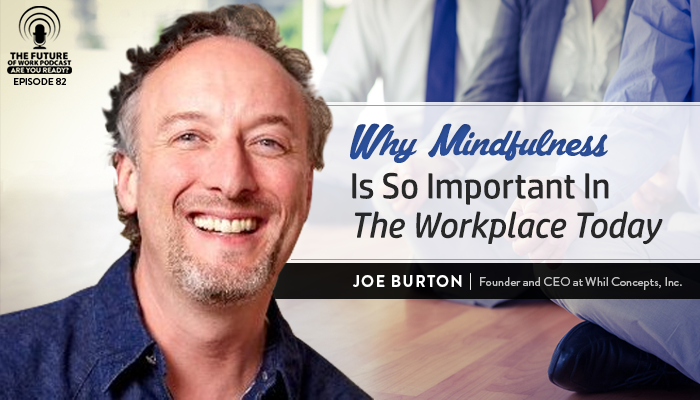
What is in this episode and why you should care:
Joe Burton comes from a corporate background, working in high stress situations with long hours and constant travel. His career was on an uphill track but his personal life and health started to decline. He even developed insomnia and asthma around the age of 40. Up until then, he would have laughed if someone suggested mindfulness as a way to alleviate his stress. Joe realized that mindfulness training helped him be more present and aware. He developed a deeper relationship with his emotions and central nervous system. It changed the way he is with his family and as a leader.
Now Joe is the founder and CEO of Whil, a mindfulness training company that offers three digital programs that work on any computer or mobile device. Mindfulness and Yoga for Adults which is all about stress reduction and improving performance. Grow is for helping teenagers deal with being a teen in today’s world. Search Inside Yourself is focused on leadership, emotional intelligence, teamwork, and collaboration skills. Whil is primarily focused on serving corporations, healthcare systems, and universities but can be used by anyone that is looking for a way to help calm their life down. It now has 350,000 users and for every product sold, Whil gives one away.
The average person spends almost half of their time with their mind wandering, usually worrying. We are living in an age that has our brains trained for activity. Mindfulness trains our brain to go to a place of calm and focus so we can be more present in our lives. Just 5-10 minutes of practice a day on bringing our attention back to a focal point can help us be able to maintain sustained attention for longer periods of time. It is like going to the gym for your brain..not easy but very rewarding!
“Having the awareness to understand when to act and when not, and being able to act out of choice instead of compulsion is a big part of mindfulness.” – Joe Burton
Mindfulness training is becoming more common on the workplace because there are now thousands of studies in the field of neuroscience that correlate it with improved health and performance. It is linked to improved cardiovascular health, immune systems, healing time, memory, and focus. Studies even show a link to reducing chronic pain and PTSD. Of course this is important to employees but it also benefits companies that want to reduce absenteeism and health care costs. In this on demand world, it is important to be equipped with ways to relieve stress and mindfulness training is the perfect tool.
What you will learn in this episode:
- What is mindfulness
- Myths and misconceptions
- What it means to be mindful
- Examples of mindfulness
- Impact of mindfulness
- Leadership and relationships
- Tips on how to become more mindful
Link From The Episode:
